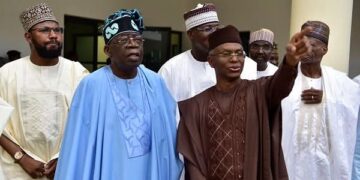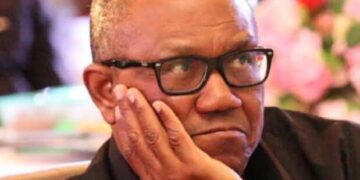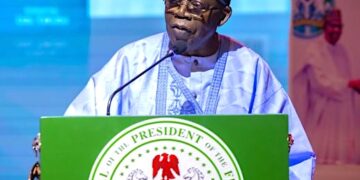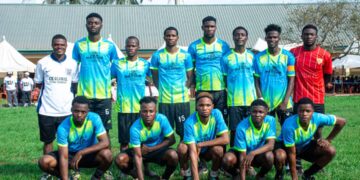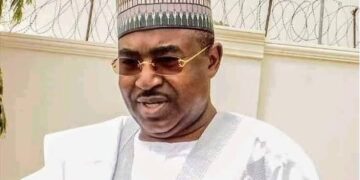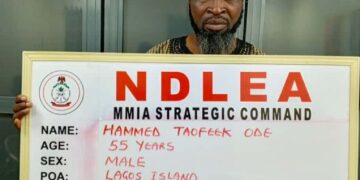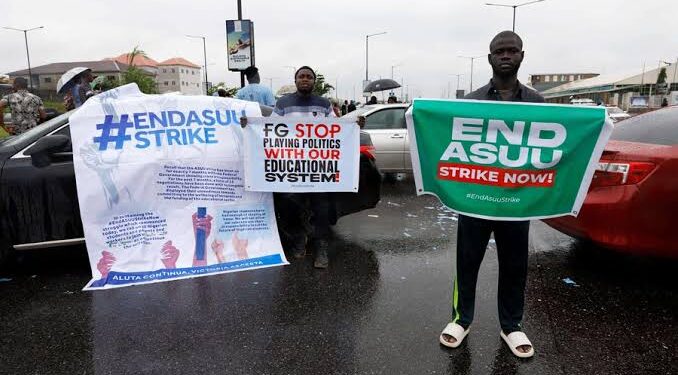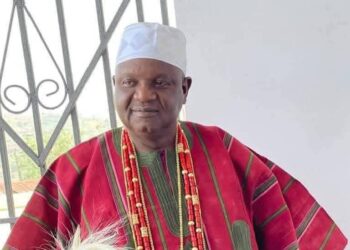f you must blame the hawk for wickedness, first blame mother-hen for exposing her children to danger. (African Proverb).
It is becoming increasingly clear that, in very recent times, the Nigerian media has become awash with Press statements, comments, and interviews from the Academic Staff Union of Universities (ASUU). The careful observer would have noticed also that ASUU’s recent body language points clearly to only one thing, which is that: the clouds are gathering for yet another heavy ‘downpour’ (show down) between ASUU and the FGN and it would, perhaps, be the first ‘downpour’ since President Bola Ahmed Tinubu took over power in 2023. Central to ASUU’s demands are four key items namely: (1) Renegotiation of the 2009 ASUU-FGN agreement (2) Sustainable funding of Nigerian Universities (3) Revitalization of Nigerian Universities (4) Victimization of Colleagues in LASU, KSU (now Prince Audu University) and FUTO .
For the careful observer who has followed the ASUU-FGN conflict over the past few years, these demands would seem dejavu because most of them have been there for a fairly long period of time and they have been debated, they have been combated, they have been re-emphasized, they have been re-asserted by ASUU as a union. Lamentably, they have simply been ignored and discarded by both past and present Governments in Nigeria. So, what are the demands of ASUU and what are the issues in contention?
The first is the Federal Government’s violation of the Collective Bargaining Principle. For the benefit of the doubt, Collective bargaining is a principle in labor law where there is a written contract between an employer and a trade union in which both sides negotiate to reach a consensus on issues like wages, working hours, benefits and other workplace matters. In other words, Collective bargaining is a process of reaching an agreement where both parties discuss their needs and interests in order to find a common ground. Central to the Collective Bargaining principle is the expectation that once agreed upon, the collective agreement should be implemented by the employer and strictly monitored for compliance. For the Academic Staff Union of Universities (ASUU), the first agreement between ASUU and the Federal Government of Nigeria was signed in 1981 under the civilian regime of Alhaji Shehu Shagari. But two years after the agreement, the military took over power from Shagari in 1983. And during the many years of military rule——-especially the regime of General Ibrahim Babangida—— the soldiers embarked on a systematic harassment and intimidation of academic staff and even the arrest and detention of some of its union leaders and outright proscription of the union. But to its credit, it was the same military junta of Gen. Babangida that signed the second agreement with ASUU in 1992. The 1992, Agreement is significant in at least two ways among others. First, it introduced the Education Tax Fund (ETF) which later metamorphosed to the Tertiary Education Trust Fund (TetFund) in 2011. Second, it has brought about rapid infrastructural development to the tertiary education sector and its presence in all tertiary institutions in Nigeria is something that cannot be missed even by the most indifferent spectator. To all these must be added the fact that TetFund is one of the most glaring and clearest examples of ASUU struggles. But, as is in the nature of authoritarian regimes, the 1992 agreement, beneficial as it was, was summarily truncated by the military junta.
It is twenty -six years today since the military have retired to the barracks and civilians, who are supposed to be more tolerant and democratic, have been in power. It is the height of irony that all the civilian regimes in Nigeria since 1999 have refused to obey the collective bargaining principle as enshrined in the International Labor Organization (ILO) Convention No. 98 of 1949 and Convention No. 154 of 1981.Consequently, ASUU as a union has lost faith, trust and confidence in the present democratic dispensation.
Fast forward to 2009. In that year also the FGN signed another agreement with ASUU. The Government team was headed by Chief Gamaliel Onosode while ASUU was represented by Dr. Abdullahi Sule who was later replaced by Prof.Ukachukwu Awuzie. Over the years, ASUU has made series of efforts to get the government to renegotiate this very agreement. The efforts of ASUU bore fruits in March, 2017 but sadly the Federal Government has two times turned down the two draft agreements especially the ones headed by Emeritus Prof. Nimi Briggs and the most recent one submitted by the Alhaji Yayale Ahmed committee in February, 2025. By all standards, the 2009 agreement seems to be more forward-looking because it has great promise and is aimed at addressing thorny issues like funding, salaries and welfare. Government’s refusal to implement or renegotiate the 2009 agreement, therefore, is an abundant testimony of the fact that the Nigerian Government does not care about university education and this is the major reason for the prolonged crisis in the university system. Undoubtedly, the implementation of the 2009 agreement would have provided a solution to the numerous problems bedeviling university education in Nigeria today.
The other key demand of ASUU as a union is funding and revitalization of Nigerian universities. But here again, it could be perceived that these two issues—–funding and revitalization——are also tied to the re-negotiation or implementation of the 2009 agreement. And this is true because Nigerian universities if properly funded would motivate university teachers to conduct research in libraries and well- equipped laboratories. If properly funded, both the university teacher and the student could have access to electronic and physical journals, books, chemicals and reagents. Former ASUU President and INEC Chairman, Prof. Attahiru Jega has captured this unfortunate reality in the following words:
Inadequate funding limits resources and impacts quality of education
delivery. Poor infrastructure and overcrowding hinder effective learning
environments. Training qualified manpower and addressing teacher shortages
positively affects imparting quality education. Development of technology in
teaching and research is necessary and requires appropriate investment in
software and hardware and in training and retraining of necessary staff.
Lest we forget, education remains a basic human right as outlined in article 26 of the Universal Declaration of Human rights, article 28 of the Convention on the rights of the child and article 11 of the African charter of the rights and welfare of the child. All these Conventions emphasize the need for the state to provide free and compulsory basic education. But instead of doing this, the Nigerian leadership is more interested in establishing new universities in the country. We find ourselves in a situation where universities are established not for pragmatic reasons but just to score some cheap pollical points. As a matter of fact, the idea of the university as the ‘ivory tower’ has been completely eroded in Nigeria and we fear that one day every Nigerian Senator shall have a university located at his very backyard. Just look at this: there are 72 Federal universities in Nigeria, 108 State universities and 159 private universities. Add this up and you get a total of 339 universities in just one country (not a region) that allocates a paltry 7% of its total budget to the education sector. In contrast, a country like the United Kingdom has a number of about 130 universities only because it is a country deeply concerned with quality and global recognition. Other examples are the Republic of South Africa which has only 26 universities, East Africa, with 19 countries, has 340 universities and the entire North Africa, with seven or more states, has 360 universities. And this explains why foreign universities are considered among the best in global university rankings. Is it surprising that many Nigerian students flock to foreign universities to acquire higher education? It is in this regard that the National Universities Commission (NUC), has played a quisling role. It seems clear that the Commission lacks the capacity to effectively perform its role as a regulatory body saddled with the responsibility of enhancing quality in the university system. Rather, the Commission encourages the establishment of private universities charging extortionate fees which are not commiserate to the services offered and which are essentially profit-driven. ASUU’s demand for a review of the laws governing the NUC and JAMB, therefore, is truly justified. In Nigeria, private universities consider their students as customers because of their capacity to pay high charges and fees. At the end of the degree program, students in private universities are compensated with ‘first class’ degrees. It is on record that a private university in Nigeria churned out 150 first class graduands at one convocation ceremony.
Philosophers say that there is nothing so bad that does not carry with it a few good things. As a parenthetical remark, therefore, the recent seven years moratorium on the establishment of universities in Nigeria by the FGN is commendable. Same commendation may go to, Mr. Francis Nwifiru, the Ebonyi state Governor who has recently resolved the lingering crisis in the Ebonyi State university (EBSU) by addressing issues of funding, student’s welfare and the re-opening of the ASUU secretariat in that university.
Moving away from issues of funding and revitalization is the Nigerian government’s usurpation of the duties of university Senates and Governing Councils. And this brings us to the issue of university autonomy and freedom, another key demand of ASUU. To put it modestly, university autonomy simply means the freedom of a university to manage and govern its own affairs independently and without external interference particularly from the government or its agents. In other words, university autonomy is the freedom for the university to determine or shape its curricula, select or appoint staff (including Vice chancellor), admit students, manage finances and determine research priorities. Unfortunately, the Nigerian leadership has denied universities this autonomy by constantly meddling into the affairs of both federal and state universities. The most recent example is the Government’s attempt to impose someone whose promotion to the rank of Professor is dubious at the Alvan Ikoku University of Education Owerri. The second recent example is the Government’s deliberate interference in the process of electing a substantive Vice chancellor at the University of Abuja (now Yakubu Gowon University). To all these must be added the victimization of several academic staff in Lagos State University (LASU), Kogi State University (now Prince Abubakar Audu University) and Federal University of Technology Owerri (FUTO). And this is just a partial list of the universities and the numerous issues at the heart of ASUU’s demands.
For now, it is clear that the FGN has a strong habit of treating ASUU demands with levity and disdain. And it is this kind of attitude that has all the potential of creating endless crises in Nigerian universities. This same attitude leaves one with a millipede of questions: why is the university the target of government animosity? Why has the Nigerian government refused to give the education sector the attention and priority it deserves? Why is the political class in Nigeria insincere in dealing with issues concerning education? The number of questions begging for answers are as long as a railway line. The conclusion is that the Nigerian government has deliberately refused to fund the education sector and this accounts for the monumental rot in the system as well as the unending conflict between ASUU and the FGN. To put it bluntly, quite often, and in very recent times, the Federal Government has consistently pushed ASUU to embark on avoidable strike actions in Nigeria just to turn back and seize the salaries of ASUU members and create the impression that the union is intransigent and insensitive. I think that the time has come for Parents, teachers, students and other stake holders in the education sector to hold the FGN responsible for this kind of mischief and hypocrisy which finds memorable expression in the proverbial wisdom of our folks: If you must blame the hawk for wickedness, first blame mother-hen for exposing her children to danger. In other words, should ASUU embark on another strike action in the coming days, the Federal Government should take the blame.




